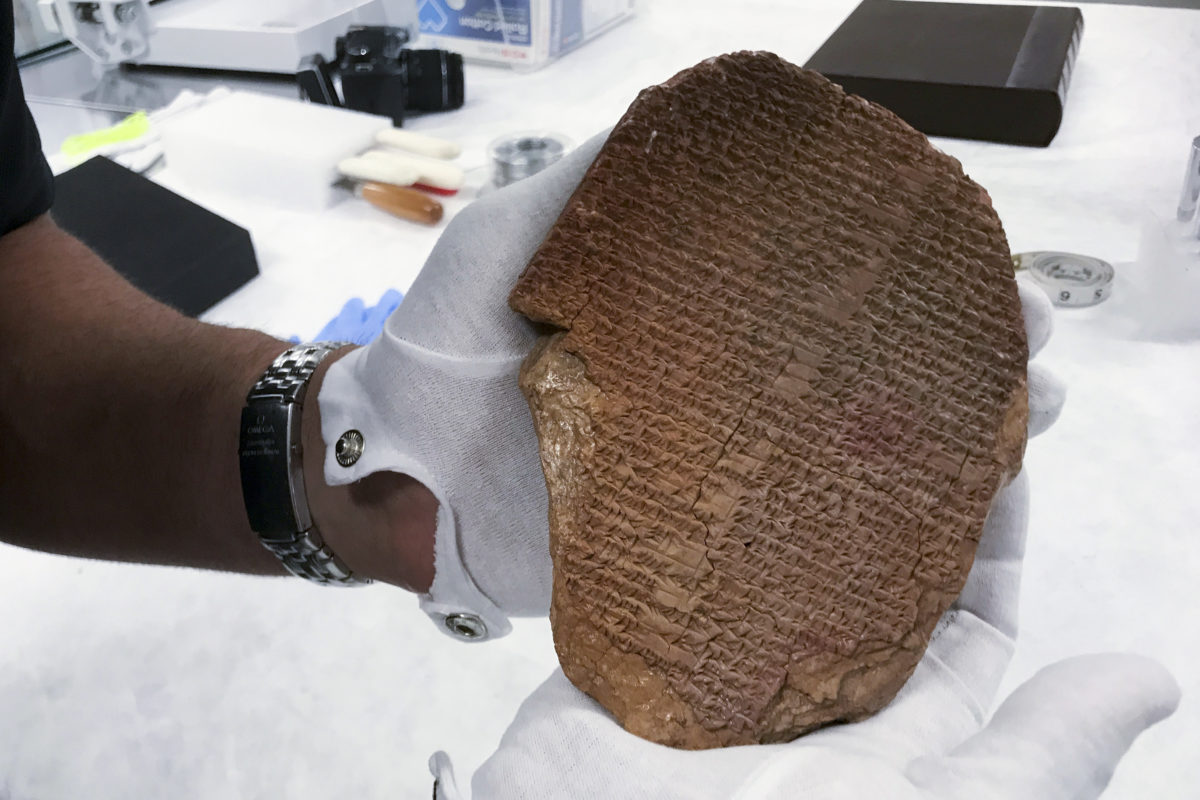

Studying Cuneiform in Times of Conflict - Ethical Considerations from an Art Crime Perspective
This is just a quick reminder that the Middle East History and Theory Workshop will continue this Thursday (11/9) at 4PM in SSRB 302 when we will welcome Luise Loges, a postgraduate researcher in Archaeology at the University of Glasgow. Loges will present her paper, "Studying Cuneiform in Times of Conflict - Ethical Considerations from an Art Crime Perspective," in person at the workshop.
Luise Loges
School of Humanities
University of Glasgow
"Studying Cuneiform in Times of Conflict -
Ethical Considerations from an Art Crime Perspective"
Thursday, November 9th
4:00PM-5:30PM
SSRB 302
Few ancient artefacts are as sought-after by antiquities collectors as text documents written in cuneiform, one of the oldest writing systems known to humankind. The script was invented in Southern Iraq, some 5000 years ago. The area was densely populated before and during the first literate periods, with the first cities and territorial states. In fact, there are so many archaeological sites in the region, that a large part of them has never been scientifically excavated, despite being widely visible in the landscape. This same area has been subjected to intense archaeological looting, first, under the international sanctions against Iraq following the 1991 Gulf War, then, during and after the American-led invasion of 2003. Often, the looters were after cuneiform texts, inscribed on clay tablets. Many such documents have since surfaced in private collections without provenance, an ownership history tying them to a legal origin. They have most likely been looted in the aftermath of recent wars. One example of collectors who bought loot is the American Green family, owners of Hobby Lobby and the Museum of the Bible. Unlike other archaeological finds, which are generally seen as having little historical and scientific value without provenance, text finds have often been argued to still hold scholarly value and grant historical insight even when they were stripped of their archaeological context. Some scholars argue for the study and publication of cuneiform tablets found on the antiquities market even if, or especially when, they are likely to come from conflict zones. The rationale of this argument is that the history of a site otherwise destroyed by conflict and looting, can be partly recovered through the study and publication of its written history. However, studies of the global trade in illicit antiquities show that the demand of the market fuels looting in source countries, and that the publication of illicit texts held in private collections leads to a scholarly endorsement of these practices. Additionally, the publication of texts from Iraq by non-Iraqi scholars at Western institutions can be seen as a form of modern-day academic colonialism. Loges will weigh these arguments, and highlight the ethical dilemma of cuneiform researchers faced with the decision to "publish or perish". Loges will also discuss potential ways forward, and lessons from this debate for the study of written documents from other eras and areas.
Luise Loges is a postgraduate researcher in Archaeology at the University of Glasgow, Scotland, UK, and a science journalist with seven years of experience in archaeological science communication.
Best wishes,
Theo Knights & Darragh Winkelman
